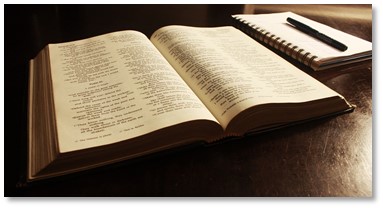Over the weekend, a friend sent me a post from one of Saddleback Church’s social media accounts announcing that their new female teaching pastor would be delivering her first sermon on Sunday, October 9. Her sermon streamed live yesterday on YouTube, and I took some time to watch it myself last night. If you are interested in watching it, this link is cued up to her husband’s introduction to her message, and her message follows immediately after.
I don’t know either of them personally, but if you take time to watch the message, you are going to see a husband and a wife that seem as sweet as they can be. You are also going to find a topical message geared toward self-help that includes no mention of the gospel. I’m certain that she and her husband believe in the gospel and share it elsewhere, but for whatever reason it was not part of this particular message.
But my focus in this post is not on the message itself but on the issue that came before Southern Baptists in Anaheim last summer and that will no doubt be before us again in New Orleans next June. Saddleback is a Southern Baptist Church. Southern Baptist Churches are defined in part by having “a faith and practice which closely identifies with the Convention’s adopted statement of faith.” Our statement of faith, The Baptist Faith and Message, says that “While both men and women are gifted for service in the church, the office of pastor is limited to men as qualified by Scripture.”
Saddleback began ordaining women as pastors over a year ago and just this past summer brought on another woman as a lead teaching pastor.
Because this practice so clearly contradicts our statement of faith, Saddleback’s status as a Southern Baptist Church has been formally challenged by concerned Southern Baptists. That challenge came to a head last summer when the Credentials Committee declined to remove Saddleback and instead recommended studying the matter for another year. After a powerful statement from Albert Mohler on the floor of the SBC in Anaheim, the convention balked, and the Credentials Committee withdrew their motion. We now await their next report to be delivered in New Orleans in June.
In the meantime, the practical reality is that the SBC has a statement of faith that says one thing and has churches (including Saddleback) that are doing another. I suspect that this departure from our statement of faith probably has less to do with theological liberalism than with atheological pragmatism. Nevertheless, while liberalism and pragmatism are two different things, they often lead to the same destination. And in the SBC, they both lead to the ordination of women as pastors in violation of The Baptist Faith & Message and, more importantly, of Scripture itself (1 Tim. 2:12; 3:1-2).
The bottom line is this. We have a theological crisis before us, and we cannot look away from it. I understand that some Southern Baptists don’t believe this to be a crisis at all. They observe that women serving as pastors is a second-order issue and just wish we could drop the whole thing. That isn’t going to be possible at this point. Unless Saddleback retreats from what it has done or removes itself from the SBC, the messengers in New Orleans are going to speak to this one way or the other. If the Anaheim convention told us anything, it told us that messengers know what the Bible says about women serving as pastors.
Some will say that the SBC shouldn’t divide over secondary issues so long as we remain united on the primary issues of the gospel, the authority of the Bible, the Trinity, salvation, etc. But that objection misses the whole point of the SBC. Our cooperation from the very beginning has always been based in part on unity in secondary issues. We share a common faith on primary issues with many evangelical Presbyterians, Methodists, Anglicans, and other Protestants. But we don’t partner with them to fund missions and theological education, and we refrain from doing so on the basis of numerous secondary issues enumerated in our statement of faith (e.g., believer’s baptism).
If the SBC can include churches that have women as pastors, can the SBC also include churches that baptize babies? Surely not. But that is what would happen if we followed the logic that claims secondary issues aren’t important for our cooperation. Secondary doctrines are important and always have been. It would be a radical change for the SBC if it were to act in a way that suggests secondary issues don’t matter anymore. That is why failing to deal with Saddleback would be radical indeed.
I agree with Jonathan Leeman that we need not use inflammatory language when talking about removing a church from the SBC. After all, you don’t have to be in the SBC to be a Christian. In this case, we are talking about differences among believers who should otherwise have unity in the gospel. Nevertheless, even Christians can have differences significant enough to prevent cooperation in missions and theological education. And that appears to be where we are now with Saddleback.
The Baptist Faith & Message clearly affirms that only qualified men may serve in the office of pastor, and there is an effort underway right now to make that even more clear. The only thing that remains is for Southern Baptists to make clear what they think about this when they gather in New Orleans next summer. I suspect they will make themselves very clear, and they will do so in a way that affirms our statement of faith. At the very least, that is what I am praying for as we look forward to our meeting in June.






